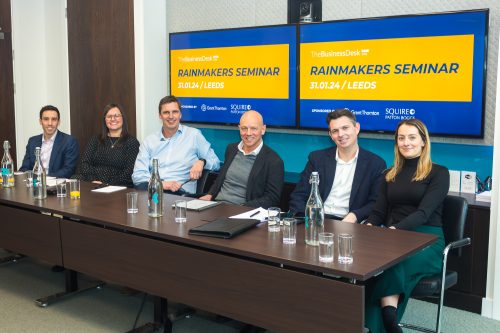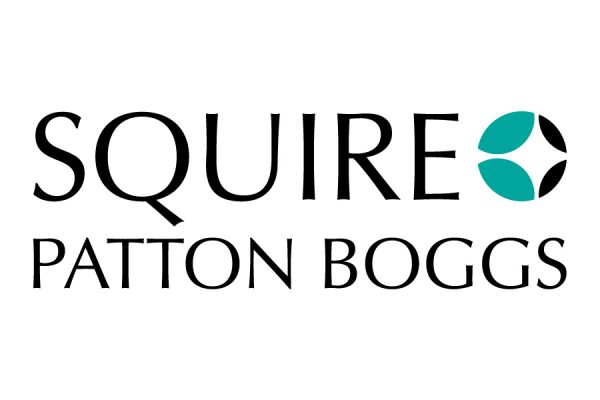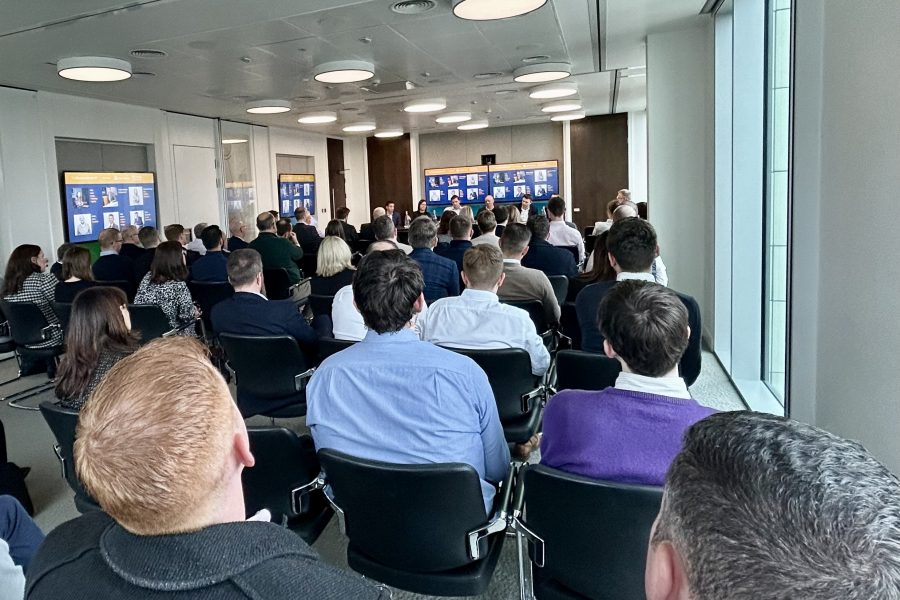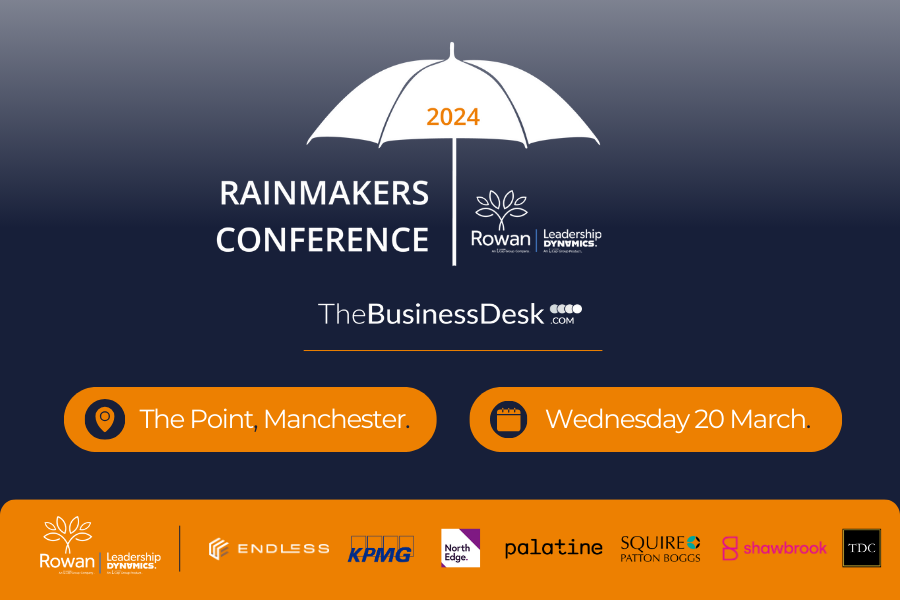Rainmakers outlook: Momentum starts to build after tough 2023

A packed room at TheBusinessDesk.com’s Rainmakers seminar in Leeds, supported by Squire Patton Boggs and Grant Thornton, heard from an expert panel reflecting on the deals market in 2023 and looking forward to what the year ahead might have in store, discussing funding and investment trends, and analysing the impact of technology.
Our first article focuses on the uncertain market conditions of last year and the impact it had on deal volume, valuations, and completions.
“This time last year was pretty slim pickings, generally, and I think throughout the year, that the mid to larger cap – £50m-plus, £100m-plus – were harder to get away and were absolutely taking longer,“ said Paul Mann, head of UK private equity at Squire Patton Boggs.
“At the start of last year, the feedback was that the first half will be terrible and the second half will be brilliant. Broadly, the second half was better than the first half – and, as we saw it, certainly the last quarter was properly busy again.
“But there are a number of things we saw transacted in the last quarter that probably in a normal market should have been transacted in Q2 or Q3, or would have been spread out further around the year.”
Last year felt particularly challenging because of the high activity levels of the previous two years, which Mann described as “phenomenal…but ultimately unsustainable”.

Dan Rosinke
“There are some seeds of optimism for the year ahead but 2023 was a tough year,” said Dan Rosinke, national head of transaction advisory at Grant Thornton.
“Undoubtedly the deals market was low last year, down from the record highs of a couple years before. Volumes were down 20-25%, values were down even more.
“There was a bit of a change throughout the year – Q1 and Q2 were very much down, but things did slowly pick up in the second half of the year.
“We’re definitely seeing that now. Across the board, not just Grant Thornton, we’re seeing our WIP [work in progress] and pipeline improving.
Andy Lees, managing partner for new business at Palatine Private Equity, recognised the hesitancy on both sides of the deal, with buyers and sellers having reasons to be cautious.
“When selling a business during the last 12 months, if you didn’t have to take a business to market there were plenty of reasons not to,” he said.
“Funders’ appetite in the last 12 months was lower than normal, interest rates were high, therefore your ability to get your deal away if you were selling was jeopardised.
“There were quite a lot of deals that actually went to market that then didn’t get done. The number of aborted processes during the year was probably the highest we’ve ever seen it.
“That was probably a combination of buyers being more cautious and sellers being more hesitant to take the businesses to market and consummate the deals that they were contemplating, because the values were probably not getting delivered that they wanted.”

Hannah Kirkup
Key Capital Partners investment manager Hannah Kirkup, and the Rising Star winner at last year’s Rainmaker Awards in Yorkshire, said: “Tthe normalised EBITDA was really difficult to understand for the deals that we were seeing.
“They’d maybe had a big bump because of Covid and we weren’t really accepting that as their normalised trading, which feeds into the point that people weren’t getting the multiples they were expecting. The run-rate EBITDA wasn’t a true run-rate EBITDA so we weren’t really willing to hear the price that was being asked.”
She added: “There was a mix of advisors not wanting to bring good deals to a market which is unstable and the uncertainty around what’s coming because of the past couple years – Covid, Brexit, Ukraine.
Fresh Thinking Capital founder Mel Hird reflected on the impact of the economic backdrop of high inflation, which peaked at 11.1% in October 2022, and the subsequent rise in interest rates, which went from 2.25% in October 2022 to 5.25% by August 2023.
She said: “From a funding perspective, you are doing your DD [due diligence] on something that’s forever changing. What does serviceability look like? What can we see in terms of forward looking?
“A lot of the transactions that were going through refinance were taking a lot longer. I think the overhang of Covid, working from home, legal systems etc, meant it was taking a bit longer than normal, to be cautious. The extent of that caused a fair bit of turmoil from a funding perspective.”
Endless director Adam Keasey identified management confidence as an issue that created hesitancy to go to market, even with businesses that were performing well.
He said: “They thought ‘Is it going to unwind during the course of the process? Is another issue going to pop out in the economy that means I’ve not delivered my numbers? I now need to lean into that with my potential buyers.’
“The thing that our management teams have often struggled with is control. Most of the circumstances are outside their control. So they decide to wait and see if things stabilise.”
Now, with inflation much lower and interest rates appearing to have peaked, there is reason to be optimistic.
Not least because, as Lees quipped, “the good news is all those all those aborted processes will all take place in the next year now”.
Join us for the Rainmakers Conference 2024 in Manchester on 20 March, which will bring together funders, entrepreneurs, and business leaders to focus on opportunities and challenges of building a dynamic and competitive economy in the North. Find out more and book your tickets at www.rainmakersconference.co.uk.










